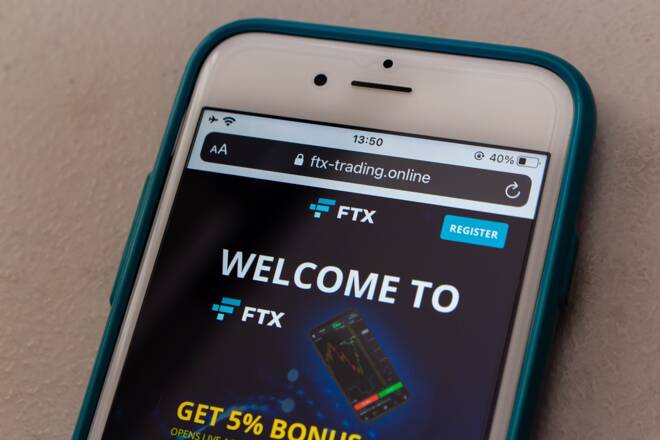Advertisement
Advertisement
FTX Crypto Exchange Launching Gaming Unit to Encourage NFT Adoption
By:
Leading cryptocurrency exchange FTX is expanding beyond derivatives and digital assets with the launch of its own gaming division.
In an effort to branch out of crypto assets, the FTX exchange has announced that it will be launching a gaming unit that will operate as a “crypto-as-a-service” platform.
The new division will be geared towards game publishers and developers encouraging them to embrace digital assets and nonfungible tokens (NFTs). It will be operated through the American branch of the exchange, FTX.US, according to a Feb. 21 Bloomberg report. A spokesperson for the firm told the outlet:
“We are launching FTX Gaming because we see games as an exciting use case for crypto. There are 2 billion+ gamers in the world who have played with and collected digital items, and can now also own them.”
Into The Gaming World
The global gaming industry is expected to top a value of $300 billion in 2022, and it ties in with digital items and currencies which are collected and used or traded in-game. FTX (FTT) aims to harness this symbiosis by building a platform that allows game developers to launch their own tokens.
In November, the firm stated that it would join partners to invest $100 million to integrate its Solana blockchain into video games. However, the network once dubbed an “Ethereum killer” has been plagued with performance and outage issues over the past few months.
Developers and crypto companies can see this marriage as being highly profitable but gamers themselves have remained highly skeptical of crypto assets, especially NFTs. However, play-to-earn (P2E) platforms have increased in popularity, especially in countries such as the Philippines where gamers have a way to earn tokens by participating.
Speaking to The Verge, president of FTX US Brett Harrison said that blockchain technology builds upon gaming features that already exist, such as avatars, items, skins, and rewards, and makes it possible for gamers to trade, own, and invest in them.
“I think the backlash is primarily out of concern that the focus on cryptocurrency will divert the efforts of game studios away from making the best game possible for the players,”
Gamer Backlash
Detractors have pointed out that there are too many scams in the crypto space and proof-of-work mining has a heavy impact on the environment. A counter-argument to this would be that so do millions of gaming servers and power-hungry graphics cards.
The shift already appears to be underway, however. Late last year, gaming giant Ubisoft Entertainment (UBI) announced a platform that would allow players of one of its popular titles to buy and sell in-game NFTs, though hardcore gamers were still against the concept.
Earlier this month, GameStop (GME) announced plans to launch its own marketplace for NFTs and a $100 million fund for game developers who use it.
About the Author
Martin Youngauthor
Martin has been covering the latest developments in the blockchain and digital asset industry since 2017 when he made his first investment. He has previous trading experience and has worked extensively in IT over the past 2 decades.
Advertisement
